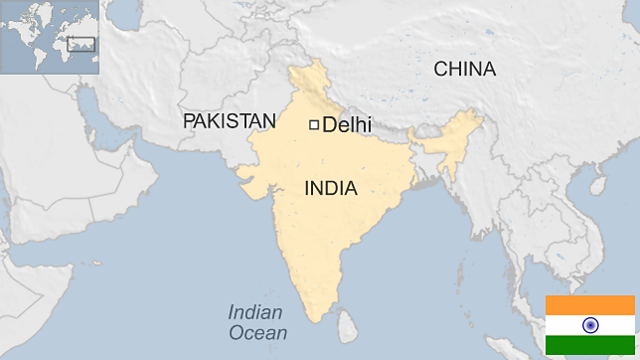Why some Patels will protest against Modi in US
- Published
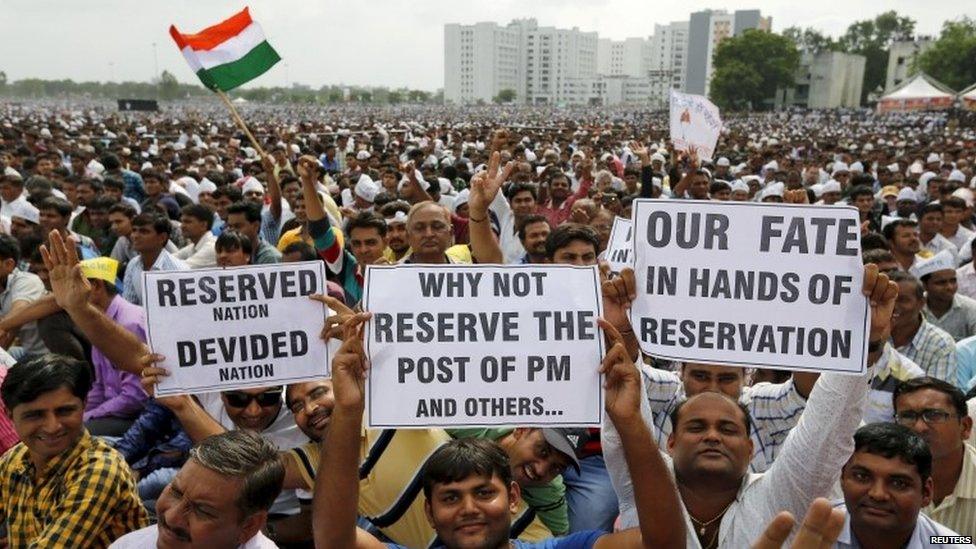
Patels in Gujarat are demanding better access to jobs and education
Members of the Patel community in India's Gujarat, Prime Minister Narendra Modi's home state, have been protesting demanding better access to jobs and education. A section of the influential community in US is planning to stage a demonstration against Mr Modi during his ongoing visit to the country for ignoring their demands. BBC Hindi's Brajesh Upadhyay reports from Washington DC.
Dakshesh Patel was one of the thousands who cheered for Narendra Modi last year in New York.
He was also among the few who travelled all the way to Canada just to listen to his favourite leader this spring.
On Friday however, Mr Patel says he will shouting slogans with hundreds of other Patels against Mr Modi when he reaches the UN Headquarters in New York.
A similar rally is planned for San Jose in California where the Indian Prime Minister is expected to get another "rock-star" reception by the Indian diaspora on Sunday.
"The honeymoon [with Mr Modi] is over," says Mr Patel, a businessman, who is angry over the prime minister's "lack of support" to his community back home.
Discontent
Patels make up 20% of Gujarat's population. The caste is economically powerful but the protesters say quotas for lower castes put them at a disadvantage.
Dakshesh Patel says he studied to be an engineer but had to leave the country when he realised there were no jobs for him in India.
The discontent among a section of Patels in the US is also over last month's alleged police "atrocities" against their fellow community members in Gujarat who, they say, were "peacefully protesting for their long overdue demands".
That it happened under the watch of a BJP government, the party that Mr Modi represents, has further fuelled the anger.
The streets of Edison in New Jersey, dominated by the Gujarati community, wore a festive look last September during the week of Navratra, a nine-day Hindu festival.
It was also the week when Mr Modi was in town. Idols and posters of Hindu deities had to fight for space with his cut-outs, and his much talked about colourful kurtas (tunics) and jackets were on sale in most Indian shops. Some residents even compared his visit to that of the return of the Hindu god Lord Rama from his 14-year long exile.
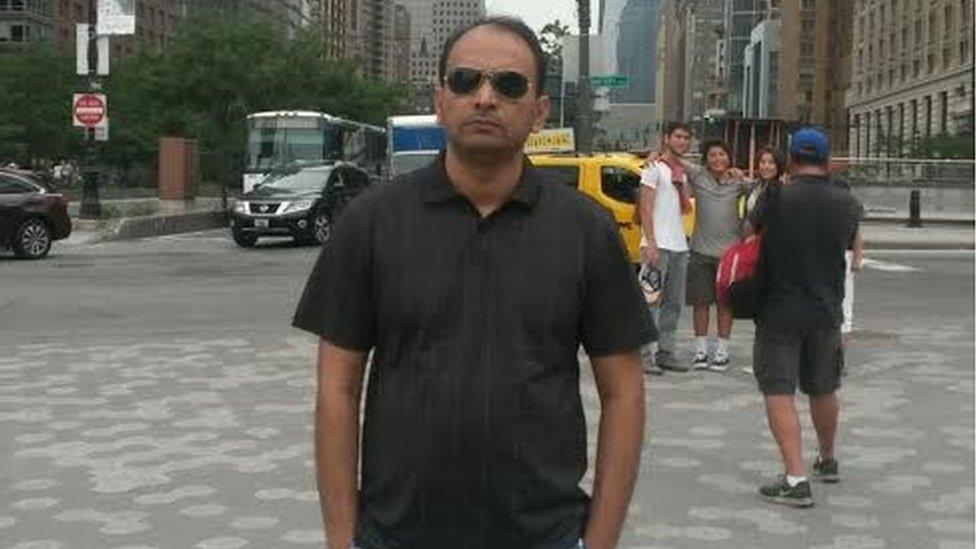
Dakshesh Patel says he feels let down by Mr Modi for not listening to his community's demands
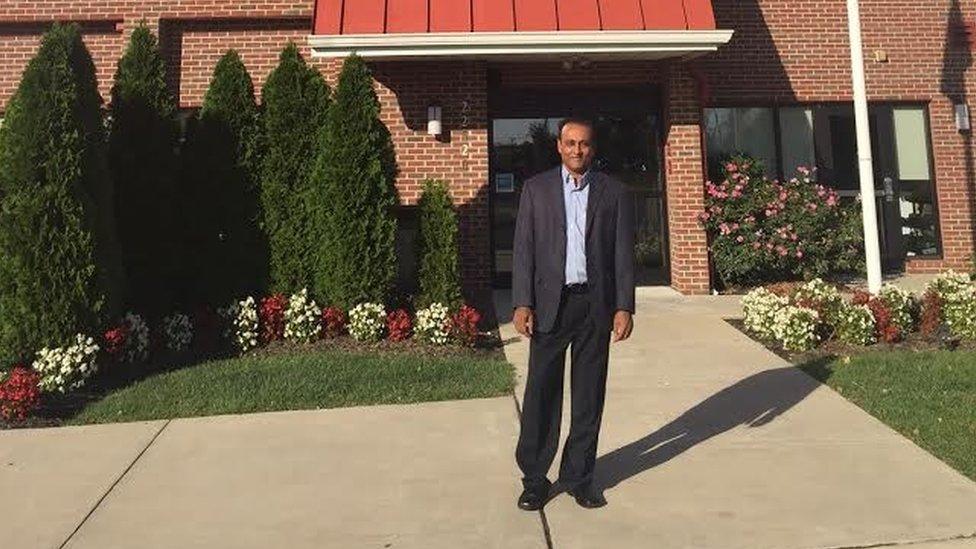
But Paul Patel says most members of his community are supporting Mr Modi
Tejas Patel, a resident of the area, says he now feels cheated.
He compares Mr Modi with Ravana, the demon king, who, according to the Hindu epic Ramayana, stole Rama's wife in the disguise of a sadhu (holy man).
"It was our fault that we got fooled again by someone who came in the disguise of a sadhu," says Mr Patel.
Dominant and affluent
Patels are considered the most dominant and affluent among the Indian migrants to the US.
The Patel surname ranks 172 on the list of 1000 most common surnames in the US, way above Khan, Ali, Singh and Shah.
More than 40% of hotels in the US are owned by Indian Americans. The hotels employ more than 600,000 workers and pay nearly $10bn (£6.55) in salaries annually. The Patels dominate this industry.
It's also highly unlikely that any of these Patels would ever go back to India to seek government jobs. So why bring the Indian caste agitation to American shores?
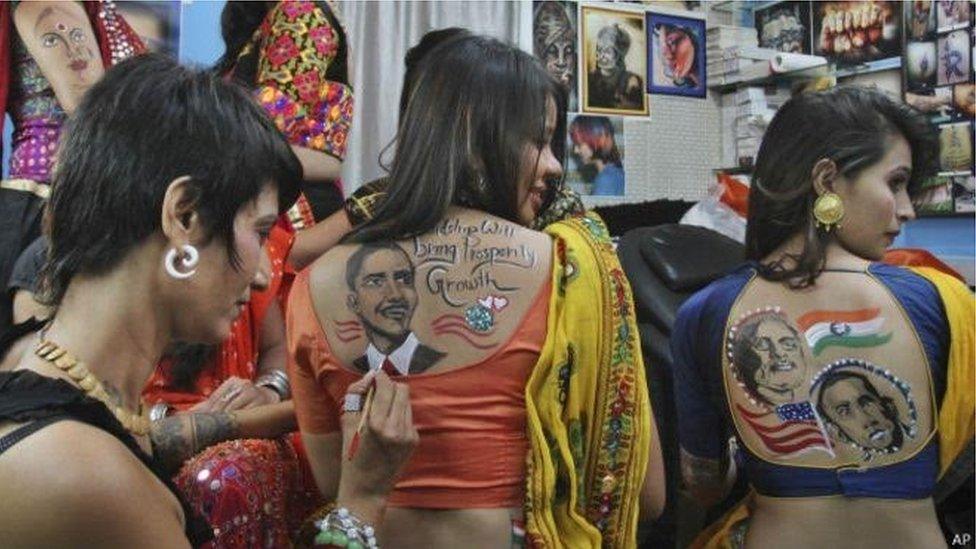
Mr Modi got star treatment during his visit to US last year
Dakshesh Patel says they are a close-knit community and the agitation is a way of expressing solidarity with those back home.
"Also, when Mr Modi doesn't hesitate to talk about domestic politics and scams during his visits abroad, why should we?" he says.
Mr Patel is also one of the organisers of the protest rally in New York and says more than 3,000 people have confirmed their participation but the local police may not allow so many.
However, the protesting Patels will be far outnumbered by Patels who are likely to assemble to welcome Mr Modi both in New York and Silicon Valley.
Some of the biggest Patel groups have expressed their support for Mr Modi and so has the Asian American Hotel Owners Association.
Paul Patel says he is very much against the protest by a small number of his community members.
"Mr Modi is coming to the US to represent Indian interests. This is no place for raising local issues," he says.
He says "more than 90% of the Gujarati community, including the Patels, is with Modi" and looking forward to his visit.
- Published22 June 2013
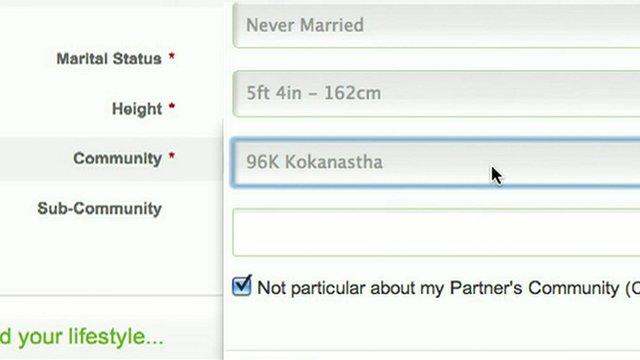
- Published10 March
